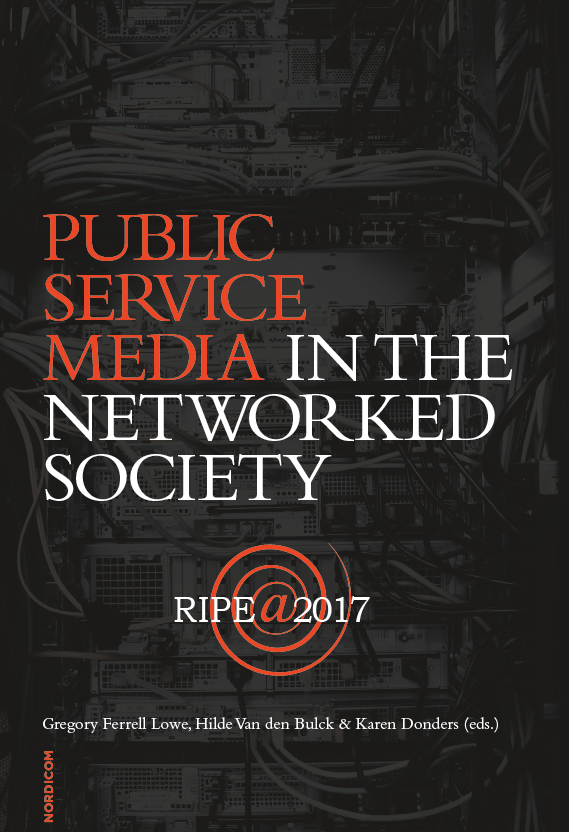Public Service Media in the Networked Society
RIPE@2017
The eighth RIPE Reader critically examines the ‘networked society’ concept in relation to public service media. Although a popular construct in media policy, corporate strategy and academic discourse, the concept is vague and functions as a buzzword and catchphrase. This Reader clarifies and critiques the networked society notion with specific focus on enduring public interest values and performance in media. At issue is whether public service media will be a primary node for civil society services in the post-broadcasting era? Although networked communications offer significant benefits, they also present problems for universal access and service. An individual’s freedom to tap into, activate, build or link with a network is not guaranteed and threats to net neutrality are resurgent. Networks are vulnerable to hacking and geo-blocking, and facilitate clandestine surveillance. This Reader prioritises the public interest in a networked society. The authors examine the role of public media organisations in the robust but often contradictory framework of networked communications. Our departure point is both sceptical and aspirational, both analytical and normative, both forward-looking and historically-grounded. While by no means the last word on the issues treated, this collection provides a timely starting point at least.
Content
Section I: Concepts and Critiques
Section II: Policy, Structures and Governance
Section III: Audiences, Distribution and Service Challenges

